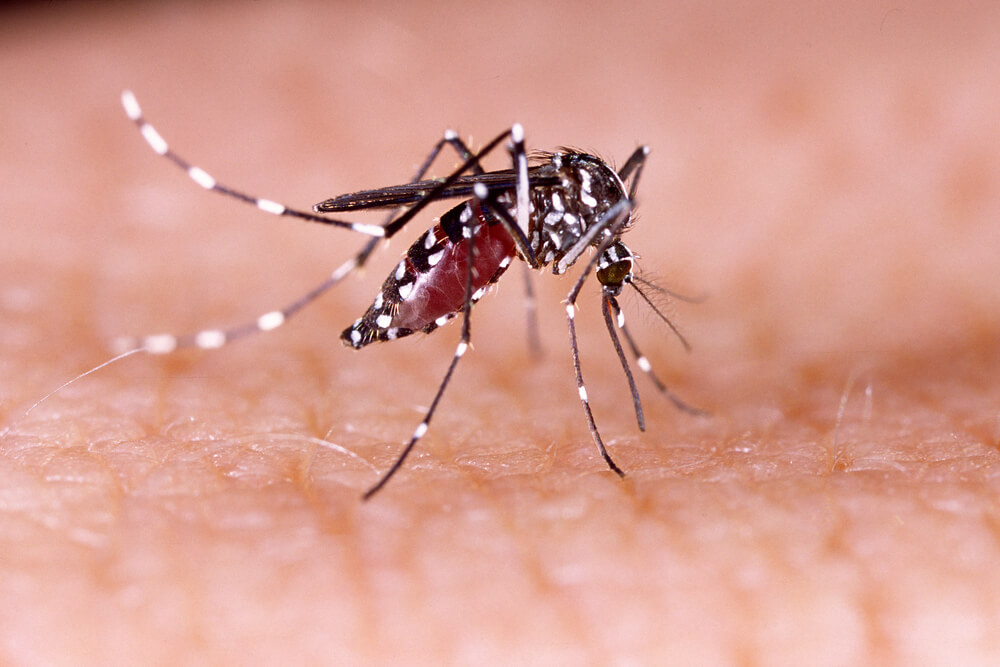During pregnancy, unforeseen challenges can emerge, and one such concern casting a shadow over expectant mothers is the Zika virus. This microscopic foe, primarily transmitted by mosquitoes, introduces unique risks during pregnancy, potentially impacting both maternal and fetal health. This article introduces the topic of the intricacies of Zika during pregnancy, unraveling the associated risks, effects on babies, and essential prevention strategies.
As we embark on this exploration, we aim to empower mothers-to-be with knowledge, offering an easy-to-follow guide to navigate the complexities of Zika and fostering a safer, healthier journey to motherhood. In order to do this successfully, medical teams at My OBGYN Specialists focus on the patients and their needs, ensuring the best possible care and support for each individual.
Zika During Pregnancy: The Risks
Zika virus, a microscopic threat carried by the Aedes mosquitoes, poses unique and heightened risks for expectant mothers. The virus can breach the protective barrier of the placenta, potentially leading to a range of complications during pregnancy. Among the foremost concerns is the link between Zika infection and microcephaly, a condition where the baby’s head and brain may not develop properly. Beyond microcephaly, other birth defects and neurological issues have been associated with Zika during pregnancy.
The risks are not limited to the early stages; evidence suggests that infection during any trimester can pose dangers. Understanding these risks is paramount for expectant mothers and healthcare providers alike, shaping decisions regarding prenatal care and emphasizing the importance of robust preventive measures throughout the gestational period. The phrase “Zika during pregnancy” encapsulates the heightened risks and complexities associated with this period.

Effects of Zika Virus on Babies
One of the gravest concerns is the potential impact of Zika on developing fetuses. The repercussions of Zika virus infection on developing fetuses are profound and demand close attention. Numerous studies have established a disconcerting link between Zika during pregnancy and a range of adverse outcomes for the unborn child.
Perhaps most notably, there is an increased risk of microcephaly, a condition characterized by an abnormally small head and potential developmental delays. Beyond microcephaly, other neurological impairments and birth defects have been documented, emphasizing the far-reaching impact of Zika on the developing nervous system. It’s crucial to acknowledge that the severity of these effects can vary, but the potential for harm underscores the urgency of preventive measures.
Recognizing and comprehending the impact of Zika on babies is a pivotal step in guiding expectant parents and healthcare professionals toward informed decisions and proactive interventions.
Zika Pregnancy Symptoms: Recognizing the Warning Signs
Early detection of Zika virus infection during pregnancy hinges on a keen awareness of its associated symptoms. While the signs may mimic those of various common illnesses, vigilance is key.
Some of the main symptoms include:
- Fever
- Rash
- Joint pain
- Conjunctivitis
However, it is essential to note that the virus may be asymptomatic in some cases, making routine prenatal screenings crucial for comprehensive risk assessment.
Timely recognition of these symptoms is paramount, prompting immediate medical consultation. Swift identification not only aids in alleviating maternal discomfort but, more crucially, facilitates early intervention to mitigate potential harm to the developing fetus. As such, fostering awareness about these symptoms becomes a cornerstone in the ongoing effort to safeguard maternal and fetal well-being.
Familiarizing oneself with Zika pregnancy symptoms is the first line of defense. Prompt identification allows for timely medical intervention, minimizing potential harm.
How Long Does the Zika Virus Stay in the Body?
An aspect often shrouded in uncertainty is the duration of Zika virus persistence in the body. The question of how long the Zika virus stays in the body encapsulates this complex temporal aspect, emphasizing the importance of continued vigilance even after the resolution of acute symptoms. While symptoms may last a few days to a week, the virus can linger in bodily fluids for an extended period, emphasizing the need for vigilant precautions.
Seminal fluid, urine, and saliva have been identified as potential reservoirs, raising concerns about the potential for sexual transmission. This prolonged presence in bodily fluids underlines the need for sustained preventive measures, especially for couples planning a pregnancy, as the virus may pose risks even after the apparent recovery from the initial infection.
Prevention Strategies
Effective prevention is the cornerstone of managing Zika during pregnancy. Implementing robust prevention strategies is essential for safeguarding maternal and fetal health. Here are some of the most used prevention strategies to help out with Zika:
- Insect Repellent: Utilize EPA-approved insect repellents containing picaridin, DEET, or oil of lemon eucalyptus to ward off mosquitoes. Apply it to exposed skin and clothing.
- Protective Clothing: Buy long-sleeved shirts and long pants to minimize exposed skin, reducing the risk of mosquito bites.
- Mosquito-Prone Areas Avoidance: Steer clear of areas with high mosquito activity, especially during dawn and dusk when Aedes mosquitoes, carriers of the Zika virus, are most active.
- Screened Accommodations: Opt for lodgings with screened windows and doors to create a barrier against mosquitoes.
- Sexual Transmission Awareness: Understand and communicate the risks of sexual transmission of Zika, especially for couples planning a pregnancy. Consistent and correct condom use is advised.
- Prenatal Screening: Regular prenatal check-ups should include discussions about travel history and potential exposure to Zika. Screening tests may be recommended based on risk factors.
- Window and Door Screens: Ensure that windows and doors are equipped with screens to prevent mosquitoes from entering living spaces.
- Elimination of Breeding Sites: Try to avoid having standing water around the home, as mosquitoes tend to breed in calm water. Be regular at emptying containers such as gutters or flowerpots.
- Educational Outreach: Community and public health education programs play a vital role in raising awareness about Zika prevention, symptoms, and the importance of early detection.
- Travel Advisory Compliance: Stay informed about travel advisories related to Zika-affected regions. Pregnant women, in particular, should exercise caution and consult healthcare providers before planning travel to such areas.
- Contraception Consultation: Women in Zika-affected areas or with potential exposure should consult healthcare providers about family planning and contraception to make informed decisions about pregnancy timing.
- Supportive Community Measures: Engage in community-led initiatives to control mosquito populations collectively, promoting a comprehensive approach to disease prevention.
By adopting these prevention strategies, individuals and communities can actively reduce the risk of Zika virus transmission, safeguarding the health and well-being of pregnant women and their unborn children.

Our Center – Empowering Mothers with Knowledge
In navigating the complexities of Zika during pregnancy, knowledge is power. By comprehending the risks, recognizing symptoms, and adopting preventive measures, expectant mothers can empower themselves to make informed decisions. The journey through pregnancy is challenging, but with awareness and proactive steps, we can strive to ensure the safety and well-being of both mother and child in the face of the Zika threat.
At our medical center, you will be able to ask anything you might want to know, regardless if it is related to the effects of Zika virus on the baby, your own safety, additional prevention techniques, etc. Call us!


